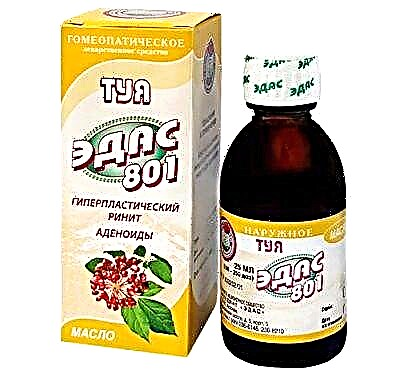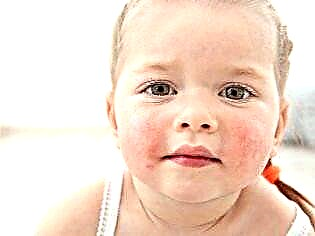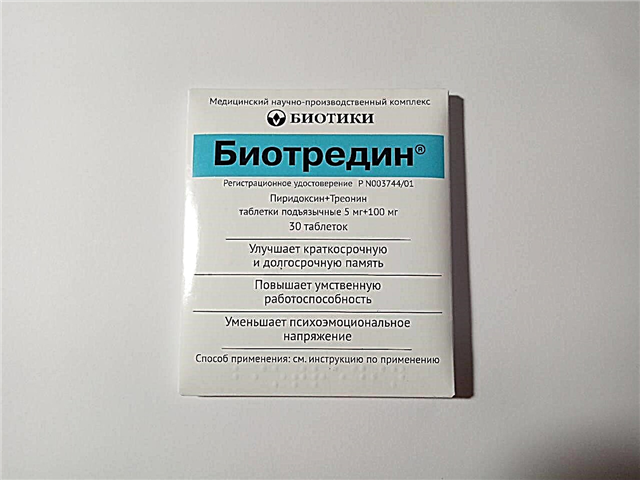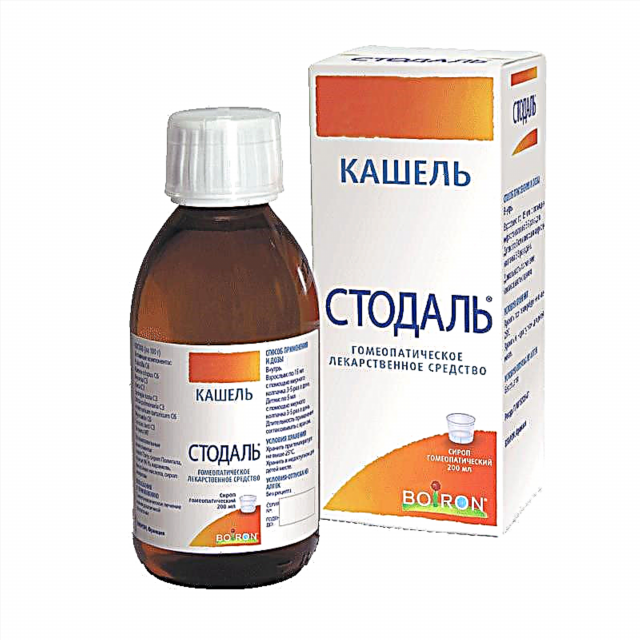
The Edas company produces many homeopathic and natural remedies used for various diseases in both adults and children. Most of the Edas products have a numerical designation, the first character of which indicates the form of release. For example, the number of drops begins with the number 1, the number 3 for syrups, and the number 8 for oils.
Consider drugs from this manufacturer that can be prescribed to children.
Sedatives
Such homeopathic remedies are in demand for neurosis, sleep problems, increased irritability during teething and other disorders of the nervous system.
Edas offers two sedative products.
- "Passambra"... Such a tool has the number "306", but sometimes it is mistakenly written as "206" or "360". Such a preparation is represented by a homeopathic syrup containing valerian tincture, passion flower and pulsatilla substances, as well as a component called "ambergris grisea". Excipients of Passambra are water and sugar, and the product itself is a thick yellow transparent liquid that smells like valerian. It is sold in 100 ml glass bottles.

- "Passionflower"... This drug is produced in two forms, therefore it is found under two numbers: "Edas-111" is a transparent colorless drops, which are sold in bottles with a dropper of 25 ml, and "Edas-911" is presented in sweet gray, cream or white spherical granules, placed in an amount of 20 g in a plastic jar. Both types of Passionflower contain the same active substances derived from passion flower, coffee tree and strychnos. An auxiliary component of drops is ethanol, and granules are sugar grains.


From a cold
The Edas company offers to treat rhinitis with such drugs.
- Rinitol. This remedy in the form of homeopathic drops is numbered "131", although by mistake moms sometimes write "311". It is in demand for various types of rhinitis - with a watery secretion, yellowish viscous discharge, frequent sneezing, nasal congestion, loss of smell and other symptoms. The drops themselves are transparent, slightly salty, colorless and odorless. One bottle of such "Edas" contains 15 or 25 ml of solution. The action of the drug is due to substances from onions, pulsatilla and chamomile. In addition, the solution includes silver nitrate and calcium carbonate, and sodium chloride, water and nipagin can be seen among the additional components.

- "Tuya"... These oil drops, which are also called Edas-801, are also sold in bottles of 15 or 25 ml. Their active ingredient is thuja oxydentalis, and the only auxiliary component is olive oil. The drug is prescribed for chronic forms of the common cold, if the mucous membrane atrophies or hypertrophies, as well as for adenoids and otitis media. The solution itself is oily, and its color is yellow-greenish.

For coughs, sore throats and adenoids
In the practice of ENT doctors, the products of the Edas company are also used.
- Tonsillin... This product is produced in drops (Edas-125) and granules (Edas-925). It is used in the treatment of acute tonsillitis and exacerbations of chronic tonsillitis, as well as in adenoiditis. The action of "Tonsillin" on the tonsils is provided by such components as hepar sulfur, barium carbonicum and mercurius solubilis. The drug also contains substances from hemlock and thuja. In the composition of the drops, these ingredients are supplemented with ethyl alcohol, and the granules are based on sugar grains. Liquid "Tonsillin" is sold in a glass bottle containing 25 ml of a colorless transparent liquid that smells of alcohol. The solid form of the drug is presented in a jar with 20 grams of white-gray or white-cream round granules.


- "Propolan"... This homeopathic remedy, which is also called "Edas-150", is indicated for various inflammatory processes, as well as for a decrease in immunity. It is based on propolis tincture and echinacea substances. Ethanol is added to them, resulting in homeopathic drops that have a brown color and the smell of propolis. They are sold in 25 ml glass vials with a dropper cap.

- "Briapis"... Such a syrup is prescribed for adenovirus infection, influenza and other acute respiratory viral infections, as well as for bronchitis, sore throat and otitis media. It is sold under the name "Edas-307" in a glass bottle containing 100 ml of a sweet yellowish transparent solution. Among its active ingredients are substances from echina, honey bees, aconite blue, bryony, belladonna and evergreen helmesia. Additionally, the preparation contains only water and sugar.

- "Anabar"... This remedy, also called "Edas-308", is in demand for decreased immunity, colds, acute respiratory viral infections, adenoids and other inflammatory processes in the respiratory tract. It tastes sweet, thick and transparent, yellow in color. As described above "Edas-307", this syrup as auxiliary components includes only sugar and water, and its volume in one bottle is 100 ml. The active ingredients of the preparation are represented by iron phosphate and barium carbonate, as well as substances from arnica, echinacea and anacardium.

Are children prescribed?
The Edas company recommends its products for people of different age groups, including small children. However, such remedies should not be used in the first years of life without the appointment of a pediatrician.
It is permissible to give any drops, syrups or other Edas preparations to infants only after being examined by a specialist who is convinced of the need for such treatment.
Instructions for use
The dosage of a specific drug "Edas" and the scheme of its use should be determined by the doctor, because the frequency of administration and the dose of the drug depend on the indications and on many other factors.
It is recommended to take sedatives three times a day. Passambra syrup is given in a dessert spoon (for children, this amount of the drug should be diluted in 1/4 cup of water), Passiflora liquid form - 5 drops each (the agent is applied to a sugar cube or dripped into a teaspoon of water), and Edas -911 "- 5 granules each (they are placed under the tongue and dissolve).


If the patient has a runny nose, then the nose should be instilled three times a day - "Rinitol" is applied 3 drops in each nostril, and "Tuya" - 3-5 drops. With otitis media, "Edas-801" in the same dosage is injected into the ear canal of the inflamed ear.
For the treatment of inflamed tonsils, a child is given either five drops of Tonsillin liquid or five Edas-925 granules. Drops are given in a spoonful of water or on a lump of sugar, and the granules should be sucked under the tongue. The frequency of taking such a remedy is 3 times a day.
If a child has ARVI or another respiratory disease, then he is given "Briapis" three times a day for a dessert spoon, offering to wash down the syrup with water. "Anabar" is used according to the same scheme, and if the doctor prescribed "Propolan", then such a remedy is dripped on sugar or in a teaspoon of water in the amount of 5 drops and given to the child three times a day.

Potential harm
As with any homeopathic remedies, Edas preparations can cause a temporary deterioration in the patient's condition in the first days of administration.
In such cases, you should consult your doctor to reduce the dosage or discontinue treatment by choosing an analogue.
In addition, an allergic reaction may occur to any of the Edas products, which requires discontinuation of the drug. Other negative effects such drops, syrups and granules do not provoke, and the only contraindication for their use is hypersensitivity.


Reviews
You can see a lot of positive feedback on the use of Edas products. Among the main advantages of them are the natural composition, good tolerance, efficacy and affordable price.
The minus of drops is the presence of ethanol in them, and the syrup is a large amount of sugar. You can also find negative reviews in which they complain about the lack of a therapeutic effect.

Analogs
Other homeopathic remedies can be substitutes for the Edas products, depending on their therapeutic effect. For example, instead of "Passiflora" and "Passambra" can be used such means as "Notta", "Valerianachel", "Tenoten for children" or "Nervohel".
If you need to replace "Tuya" or "Rinitol", you can use the drugs "Corizalia", "Tuya-GF", "Rinital", "Tuya DN" or "Tsinnabsin". Instead of "Tonsillin" the doctor may recommend "Tonsilotren", "Barberry Comp." or "Angin-hel SD", and analogues of "Propolan" and "Anabar" can be called "Aflubin", "Influcid", "Ergoferon" and "Otsillococcinum".
For more information on the Edas tool for children, see the next video.



